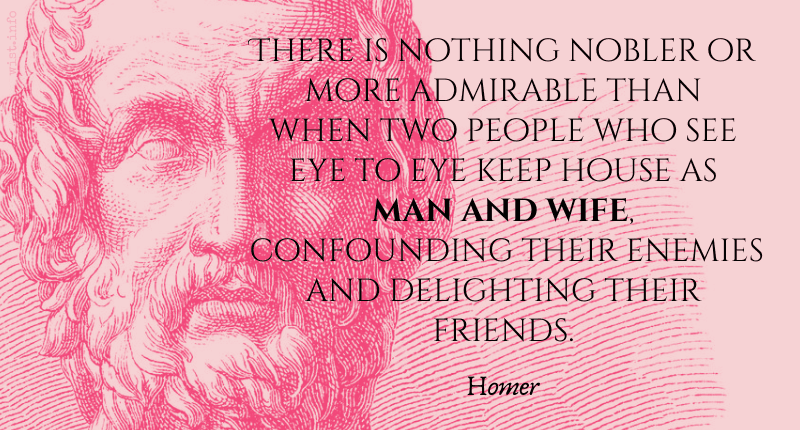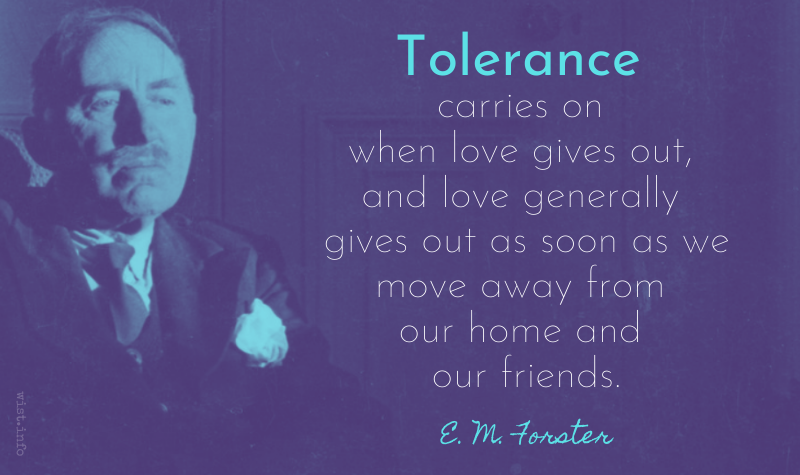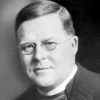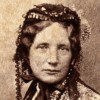Now must I go. The shade of this juniper turns chill.
Shade stunts a crop, and it’s bad for a singer’s voice. My goats,
You have pastured well, the twilight deepens — home then, home!
[Surgamus; solet esse gravis cantantibus umbra;
iuniperi gravis umbra; nocent et frugibus umbrae.
Ite domum saturae, venit Hesperus, ite capellae.]Virgil (70-19 BC) Roman poet [b. Publius Vergilius Maro; also Vergil]
Eclogues [Eclogae, Bucolics, Pastorals], No. 10 “Gallus,” l. 75ff (10.75-77), closing lines (42-38 BC) [tr. Day Lewis (1963)]
(Source)
(Source (Latin)). Alternate translations:
Let us arise; shades oft hurt those who sing;
Juniper shades are to our fruit a foe,
The Evening comes, goe home, my fed Kids, goe.
[tr. Ogilby (1649)]
Now let us rise, for hoarseness oft invades
The Singer's Voice, who sings beneath the Shades.
From Juniper, unwholesome Dews distill,
That blast the sooty Corn; the with'ring Herbage kill;
Away, my Goats, away: for you have browz'd your fill.
[tr. Dryden (1709), l. 110ff]
Rise we; shades, e'en of juniper, annoy
The minstrel choir, the ripening grain destroy:
Goats, from your pastures sated, homeward hie --
See, where bright Hesper fires the evening sky!
[tr. Wrangham (1830), l. 81ff]
Let us arise: the shade is wont to prove noxious to singers; the juniper's shade now grows noxious; the shades are hurtful even to the corn. Go home, the evening star arises, my full-fed goats, go home.
[tr. Davidson (1854)]
I rise. The shadows are the singer's bane:
Baneful the shadow of the juniper.
E'en the flocks like not shadow. Go -- the star
Of morning breaks -- go home, my full-fed sheep.
[tr. Calverley (c. 1871)]
Let us rise: shade is often dangerous to those who sit and sing; there is danger in the juniper's shade: why, shade hurts the crops too. Go home, the evening star is rising: my well-fed goats, go home.
[tr. Wilkins (1873)]
Now, enemy to vine and fruit,
The dews descend; the shadows fall
And homeward flocks and shepherds call.
[tr. King (1882), ll. 1018ff]
But let us rise, for never voice was made,
Nor verse, more tuneful by a chilling shade,
To man distasteful and the ripening field:
Such, even junipers at nightfall yield.
Now pales the latest crimson of the West:
Gather yon batten'd herd, I bring the rest;
And then wind homeward in the dying light;
Homeward my goats, for Hesperus is bright.
[tr. Palmer (1883)]
Come, let us rise: the shade is wont to be
baneful to singers; baneful is the shade
cast by the juniper, crops sicken too
in shade. Now homeward, having fed your fill --
eve's star is rising -- go, my she-goats, go.
[tr. Greenough (1895)]
Let us arise: the shade is wont to prove hurtful to singers; the juniper’s shade now grows noxious; the shades are damaging even to the crops. Go home, my full-fed goats; the evening star arises, go home.
[tr. Bryce (1897)]
Let us arise; the shade is wont to be heavy on singers: the juniper shade is heavy: shade too hurts the corn. Go home full-fed, the Evening Star comes, go, my she-goats.
[tr. Mackail (1899)]
Now let us rise; for singers it is ill
To linger in the shade—to the young corn
The junipers' deep shadow worketh harm;
The evening star shines forth -- now go, my goats,
Ye may return, full fed, towards your home.
[tr. Mackail/Cardew (1908)]
But let us go!
The darkness of the night works hurtful change
Upon a shepherd's voice; the junipers
Love not the darkness, and the ripening fields
Thrive not in shadow. Home ye mother-goats!
Run home full-fed! Behold the evening-star!
[tr. Williams (1915)]
Let us arise. The shade is oft perilous to the singer -- perilous the juniper’s shade, hurtful the shade even to the crops. Get home, my full-fed goats, get home -- the Evening Star draws on.
[tr. Fairclough (Loeb) (1916)]
Now let us go. The shade is bad for singers. This is a juniper: its shade is bad. Even crops suffer in the shade.
Home with you, goats: you have had your fill. Hesper is coming: home with you.
[tr. Rieu (1949)]
Now let us rise, the shade can be harmful to singers;
A juniper shade not only menaces mortals
But crops wilt under it. Turn, my goats, from feasting,
Come, for the Star of Evening glimmers, come home now.
[tr. Johnson (1960)]
Let's go then, friend.
This shade is bad for poetry. Our throats
are dry. Let's go home." In such a way,
I'd bring the pastoral to its natural end.
We could go together, herding the fucking goats.
[tr. Slavitt (1971)]
Now we must go; the shade's not good for singers,
The juniper shade's unwholesome; unwholesome too
For the plants that need the sunshine is the shade.
Go home, my full-fed goats, you've eaten your fill,
The Evening Star is rising; it's time to go home.
[tr. Ferry (1999)]
Let’s rise, the shade’s often harmful to singers,
the juniper’s shade is harmful, and shade hurts the harvest.
Hesperus is here, home you sated goats: go home.
[tr. Kline (2001)]
Quotations about:
home
Note not all quotations have been tagged, so Search may find additional quotes on this topic.
A wise woman once said to me that there are only two lasting bequests we can hope to give our children. One of these she said is roots, the other, wings.
Hodding Carter II (1907-1972) American journalist and author [William Hodding Carter II]
Where Main Street Meets the River, “It’s How We Like It” (1953)
(Source)
Almost always quoted without the notes about the "wise woman," e.g.,
There are only two lasting bequests we can hope to give our children: one of these is roots, the other, wings.
In short, I consider this world as a place which nature never designed for my permanent abode, and I look upon my departure out of it, not as being driven away from my habitation, but as leaving my inn.
[Et ex vita ita discedo tamquam ex hospitio, non tamquam e domo; commorandi enim natura devorsorium nobis, non habitandi dedit.]
Marcus Tullius Cicero (106-43 BC) Roman orator, statesman, philosopher
De Senectute [Cato Maior; On Old Age], ch. 23 / sec. 84 (23.84) (44 BC) [tr. Melmoth (1773)]
(Source)
(Source (Latin)). Alternate translations:
I departe me from this presente life as a walkyng weyfaryng man or as a voyagieng pilgryme departith from some lodgyng place or an hostellrye for to come to his owne dwellyng house. But I departe me not from this life as the lorde departeth from his owne house for this passable life is nowght ellys but as a lodgyng place or an hostellrye.
[tr. Worcester/Worcester/Scrope (1481)]
And I depart out of this life as out of an inn, and not out of a dwellinghouse. For nature hath given to us a lodging to remain and sojourn in for a time, and not to dwell in continually.
[tr. Newton (1569)]
And I depart out of this life, as from an Inne, not as from a continuall habitation; for nature hath given us a place to rest in, not to dwell in.
[tr. Austin (1648)]
Hence from an Inne, not from my home, I pass,
Since Nature meant us here no dwelling place.
[tr. Denham (1669)]
I have not frustrated the End of Nature, and am disposed to leave this life, with as much Indifference, as an Inn upon the Road; for Nature here intends us a Lodging only, not a Fixed Home or Settled Place of Habitation.
[tr. Hemming (1716)]
And now I go from this Life as from an Inn; for Nature hath given it us as a Place to rest in, but not for a continual Habitation.
[tr. J. D. (1744)]
And when the Close comes, I shall quit Life as I would an Inn, and not as a real Home. For Nature appears to me to have ordain'd this Station here for us, as a Place of Sojournment, a transitory Abode only, and not as a fixt Settlement or permanent Habitation.
[tr. Logan (1744)]
I depart out of life just as out of an inn, and not as out of my home. For Nature has given us an hotel to sojourn in, not a place to dwell in.
[Cornish Bros. ed. (1847)]
And from this life I depart as from a temporary lodging, not as from a home. For nature has assigned it to us as an inn to sojourn in, not a place of habitation.
[tr. Edmonds (1874)]
Yet I depart from life, as from an inn, not as from a home; for nature has given us here a lodging for a sojourn, not a place of habitation.
[tr. Peabody (1884)]
But I quit life as I would an inn, not as I would a home. For nature has given us a place of entertainment, not of residence.
[tr. Shuckburgh (1895)]
I now depart
As from a lodging; house, and not a home.
Nature has made this world a place in which
One stays a little, does not dwell for aye.
[tr. Allison (1916)]
And I quit life as if it were an inn, not a home. For Nature has given us an hostelry in which to sojourn, not to abide.
[tr. Falconer (1923)]
But what nature gives us is a place to dwell in temporarily, not one to make our own. When I leave life, therefore, I shall feel as if I am leaving a hostel rather than a home.
[tr. Grant (1960, 1971 ed.)]
And I am departing from life as from a temporary lodging, not as from a home. Yes, nature has given a spot where we may turn aside for a time, not a place of permanent residence.
[tr. Copley (1967)]
But I do feel as though I am leaving an inn, not my home. Nature has given us a place to stay for a while, but not for ever.
[tr. Cobbold (2012)]
I leave this life as I would leave
An inn and not a home. Nature
Gave us in fact a temporary hotel,
Not a permanent place in which to dwell.
[tr. Bozzi (2015)]
I depart from life as if from an inn, not a house. Nature gives us our bodies to abide in only for a time as guests, not to make our home.
[tr. Freeman (2016)]
And I am leaving life as if from an inn, not a home. For nature has given us a way-station for a brief delay, not to permanently reside.
[tr. @sentantiq (2018)]
A sparkling house is a fine thing if the children aren’t robbed of their luster in keeping it that way.
Marcelene Cox (1900-1998) American writer, columnist, aphorist
“Ask Any Woman” column, Ladies’ Home Journal (1945-11)
(Source)
A good laugh is sunshine in a house.
William Makepeace Thackeray (1811-1863) English novelist
“On Love, Marriage, Men, and Women,” Sketches and Travels in London (1856)
(Source)
This particular line is widely attributed to Thackeray, but rarely cited. Part of the problem is that it is almost always given as "A good laugh is sunshine in the house," rather than "a house."
It is also sometimes cited to his famous novel Vanity Fair (1848), though the quotation cannot be found there.
“It’s true, now and again my feet itch for the road.” He was looking deep into himself, where old memories survived, and remained, after their fashion, warming and satisfying, but of the past, never to be repeated, no longer desirable. “But when it comes down to it,” said Cadfael, with profound content, “as roads go, the road home is as good as any.”
Ellis Peters (1913-1995) English writer, translator [pseud. of Edith Mary Pargeter, who also wrote under the names John Redfern, Jolyon Carr, Peter Benedict]
Summer of the Danes, concluding words (1991)
(Source)
I should like to save the Shire, if I could — though there have been times when I thought the inhabitants too stupid and dull for words, and have felt that an earthquake or an invasion of dragons might be good for them. But I don’t feel like that now. I feel that as long as the Shire lies behind, safe and comfortable, I shall find wandering more bearable: I shall know that somewhere there is a firm foothold, even if my feet cannot stand there again.
J.R.R. Tolkien (1892-1973) English writer, fabulist, philologist, academic [John Ronald Reuel Tolkien]
The Lord of the Rings, Vol. 1: The Fellowship of the Ring, Book 1, ch. 2 “The Shadow of the Past” [Frodo] (1954)
(Source)
It’s curious that throughout our history together, with no apparent effort, people have been able to think of the cat simultaneously as the guardian spirit of the hearth and home, and as the emblem of freedom, independence, and rootlessness.
To get home you had to end the war. To end the war was the reason you fought it. The only reason.
Paul Fussell (1924-2012) American cultural and literary historian, author, academic
Wartime: Understanding and Behavior in the Second World War, ch. 11 (1989)
(Source)
When I was writing a column for Family Circle, I had planned one in praise of shabbiness. A house that does not have one worn, comfy chair in it is soulless. It all comes back to the fact that we are not asked to be perfect, only human.
May Sarton (1912-1995) Belgian-American poet, novelist, memoirist [pen name of Eleanore Marie Sarton]
Journal of a Solitude (1973)
(Source)
When there was room on the ledge outside of the pots and boxes for a cat, the cat was there — in sunny weather — stretched at full length, asleep and blissful, with her furry belly to the sun and a paw curved over her nose. Then that house was complete, and its contentment and peace were made manifest to the world by this symbol, whose testimony is infallible. A home without a cat — and a well-fed, well-petted, and properly revered cat — may be a perfect home, perhaps, but how can it prove title?
Mark Twain (1835-1910) American writer [pseud. of Samuel Clemens]
The Tragedy of Pudd’nhead Wilson, ch. 1 (1894)
(Source)
And in return may the gods grant you your heart’s desire; may they give you a husband and a home, and the harmony that is so much to be desired, since there is nothing nobler or more admirable than when two people who see eye to eye keep house as man and wife, confounding their enemies and delighting their friends, as they themselves know better than anyone.
[Σοὶ δὲ θεοὶ τόσα δοῖεν, ὅσα φρεσὶ σῇσι μενοινᾷς,
ἄνδρα τε καὶ οἶκον, καὶ ὁμοφροσύνην ὀπάσειαν
ἐσθλήν· οὐ μὲν γὰρ τοῦ γε κρεῖσσον καὶ ἄρειον,
ἢ ὅθ’ ὁμοφρονέοντε νοήμασιν οἶκον ἔχητον
ἀνὴρ ἠδὲ γυνή· πόλλ’ ἄλγεα δυσμενέεσσι,
χάρματα δ’ εὐμενέτῃσι· μάλιστα δέ τ’ ἔκλυον αὐτοί.]Homer (fl. 7th-8th C. BC) Greek author
The Odyssey [Ὀδύσσεια], Book 6, l. 180ff (6.180) [Odysseus to Nausicaa] (c. 700 BC) [tr. Rieu (1946)]
(Source)
Original Greek. The passage uses variations on the Greek term ὁμοφροσύνην (homophrosynê, likemindedness). Alternate translations:
God give you, in requital, all th’ amends
Your heart can wish, a husband, family,
And good agreement. Nought beneath the sky
More sweet, more worthy is, than firm consent
Of man and wife in household government.
It joys their wishers-well, their enemies wounds,
But to themselves the special good redounds.
[tr. Chapman (1616)]
And may Jove you with all you wish for bless,
A husband and a house, and concord good;
For man and wife to live in unity
Is the great’st blessing can be understood:
It joys your friend, and grieves your enemy.
[tr. Hobbes (1675), l. 172ff]
So may the gods, who heaven and earth control,
Crown the chaste wishes of thy virtuous soul,
On thy soft hours their choicest blessings shed;
Blest with a husband be thy bridal bed;
Blest be thy husband with a blooming race,
And lasting union crown your blissful days.
The gods, when they supremely bless, bestow
Firm union on their favourites below;
Then envy grieves, with inly-pining hate;
The good exult, and heaven is in our state.
[tr. Pope (1725)]
And may the Gods thy largest wishes grant,
House, husband, concord! for of all the gifts
Of heav’n, more precious none I deem, than peace
’Twixt wedded pair, and union undissolved;
Envy torments their enemies, but joy
Fills ev’ry virtuous breast, and most their own.
[tr. Cowper (1792), l. 226ff]
And unto thee the heavenly gods make flow
Whate'er of happiness thy mind forecast,
Husband and home and spirit-union fast!
Since nought is lovelier on the earth than this,
When in the house one-minded to the last
Dwell man and wife -- a pain to foes, I wis,
And joy ot friends -- but most themselves know their own bliss.
[tr. Worsley (1861), st. 24]
But, to thyself may the immortal gods
The largest wishes of thy heart fulfil!
A consort, home, and perfect peace therein
May they bestow! For nought in nobleness,
Nought in all virtue can the good surpass
Of perfect concord in the married pair
Whose blended counsels rightly rule their home:
Their foes with pain behold it! but, to all
Who wish them well, it is a joyful sight!
Joy, which themselves, 'bove all, can well discern!" [tr. Musgrave (1869), ll. 277ff]
To thee the gods give all thy heart's desire!
A husband and home and loving hearts beside --
That best of gifts: for nought is better and braver
Than this, when man and wife unanimous
Hold their own home -- a sorrow they to foes --
A joy to friends -- and chiefest to themselves!
[tr. Bigge-Wither (1869)]
And may the gods grant thee all thy heart’s desire: a husband and a home, and a mind at one with his may they give -- a good gift, for there is nothing mightier and nobler than when man and wife are of one heart and mind in a house, a grief to their foes, and to their friends great joy, but their own hearts know it best.
[tr. Butcher/Lang (1879)]
And so may the high Gods give thee whatso thine heart holds dear,
A husband and a homestead, and concord whole and sound.
For nothing sure more goodly or better may be found
Than man and woman holding one house with one goodwill.
Thuis many a grief are they giving to those that wish them ill,
But great joy to their well-willers; and they wot it best of all.
[tr. Morris (1887)]
And may the gods grant all that in your thoughts you long for: husband and home and true accord may they bestow; for a better and higher gift than this there cannot be, when with accordant aims man and wife have a home. Great grief is it to foes and joy to friends; but they themselves best know its meaning.
[tr. Palmer (1891)]
May heaven grant you in all things your heart's desire -- husband, house, and a happy, peaceful home; for there is nothing better in this world than that man and wife should be of one mind in a house. It discomfits their enemies, makes the hearts of their friends glad, and they themselves know more about it than any one.
[tr. Butler (1898)]
And for thyself, may the gods grant thee all that thy heart desires; a husband and a home may they grant thee, and oneness of heart -- a goodly gift. For nothing is greater or better than this, when man and wife dwell in a home in one accord, a great grief to their foes and a joy to their friends; but they know it best themselves.
[tr. Murray (1919)]
And to you may the Gods requite all your heart's desire; husband, house, and especially ingenious accord within that house: for there is nothing so good and lovely as when man and wife in their home dwell together in unity of mind and disposition. A great vexation it is to their enemies and a feast of gladness to their friends: surest of all do they, within themselves, feel all the good it means.
[tr. Lawrence (1932)]
And may the gods accomplish your desire:
a home, a husband, and harmonious
converse with him -- the best thing in the world
being a strong house held in serenity
where man and wife agree. Woe to their enemies,
joy to their friends! But all this they know best.
[tr. Fitzgerald (1961)]
And then may the gods give you everything that your heart longs for;
may they grant you a husband and a house and sweet agreement
in all things, for nothing is better than this, more steadfast
than when two people, a man and his wife, keep a harmonious
household; a thing that brings much distress to the people who hate them
and pleasure to their well-wishers, and for them the best reputation.
[tr. Lattimore (1965)]
And may the gods grant you what your heart wants most,
a husband and a home, and may there be
accord between you both: there is no gift
more solid and precious than such trust:
a man and woman who conduct their house
with minds in deep accord, to enemies
bring grief, but to their friends bring gladness, and --
above all -- gaine a good name for themselves.
[tr. Mendelbaum (1990)]
And may the good gods give you all your heart desires:
husband, and house, and lasting harmony too.
No finer, greater gift in the world than that ...
when man and woman possess their home, two minds,
two hearts that work as one. Despair to their enemies,
joy to all their friends. Their own best claim to glory.
[tr. Fagles (1996)]
And for yourself, may the gods grant you
Your heart's desire, a husband and a home,
And the blessing of a harmonious life.
For nothing is greater or finer than this,
When a man and woman live together
With one heart and mind, bringing joy
To their friends and grief to their foes.
[tr. Lombardo (2000), l. 183ff]
Then may the gods grant you what you in your spirit are wishing; may they endow you with blessings, a husband and house, and a noble concord of mind: for than this there is no gift better or greater, when both husband and wife in concord of mind and of counsel peacefully dwell in a house -- to their enemies greatest affliction, joy to benevolent friends, but especially known to their own hearts.
[tr. Merrill (2002)]
And may the gods grant you your heart's desire; may they give you a husband and a home, and the blessing of harmony so much to be desired, since there is nothing better or finer than when two people of one heart and mind keep house as man and wife, a grief to their enemies and a joy to their friends, and their reputation spreads far and wide.
[tr. DCH Rieu (2002)]
Then may the gods grant you all that you desire in your heart, and may they bestow on you a husband, a house, and a good harmony of minds; there is nothing better or more powerful than this, when a man and his wife keep house in sympathy of mind -- a great grief to their enemies, but a joy to those who wish them well; and they themselves are highly esteemed.
[tr. Verity (2016)]
So may the gods grant all your heart's desires, a home and husband, somebody like-minded. For nothing could be better than when two live in their minds in harmony, husband and wife. Their enemies are jealous, their friends delighted, and they have great honor.
[tr. Wilson (2017)]
May the gods grant as much as you desire in your thoughts,
A husband and home, and may they give you fine likemindness,
For nothing is better and stronger than this
When two people who are likeminded in their thoughts share a home,
A man and a wife—this brings many pains for their enemies
And joys to their friends. And the gods listen to them especially.
[tr. @sentantiq (2018)]
And may the gods grant you all that your heart desires, husband, home, and like-mindedness -- a precious gift, for there's nothing greater or better, ever, than when two like-minded people are keeping house together, a man and his wife: much frustration for their ill-wishers, much joy for their friends, but they two know it the best.
[tr. Green (2018)]
As for you, may gods grant
everything your heart desires -- may they give
a husband, home, and mutual harmony,
a noble gift -- for there is nothing better
or a stronger bond than when man and wife
live in a home sharing each other’s thoughts.
That brings such pain upon their enemies
and such delight to those who wish them well.
They know that too, more so than anyone.
[tr. Johnston (2019)]
When there was room on the ledge outside of the pot s and boxes for a cat, the cat was there — in sunny weather — stretched at full length, asleep and blissful, with her furry belly to the sun and a paw curved over her nose. Then the house was complete, and its contentment and peace were made manifest to the world by this symbol, whose testimony is infallible. A home without a cat — and a well-fed, well-petted, and properly revered cat — may be a perfect home, perhaps, but how can it prove title?
Mark Twain (1835-1910) American writer [pseud. of Samuel Clemens]
Pudd’nhead Wilson, ch. 1 (1894)
(Source)
There is no happiness in life, there is no misery, like that growing out of the dispositions which consecrate or desecrate a home.
Every parent is at some time the father of the unreturned prodigal, with nothing to do but keep his house open to hope.
In the pathway of the sun,
In the footsteps of the breeze,
Where the world and sky are one,
He shall ride the silver seas,
He shall cut the glittering wave.I shall sit at home, and rock;
Rise, to heed a neighbor’s knock;
Brew my tea, and snip my thread;
Bleach the linen for my bed.
They will call him brave.
Home is in every sentence of your writing.
Maya Angelou (1928-2014) American poet, memoirist, activist [b. Marguerite Ann Johnson]
“The Art of Fiction,” Paris Review, #116, Interview with George Plimpton (1990)
(Source)
You can never leave home. You take it with you no matter where you go. Home is between your teeth, under your fingernails, in the hair follicles, in your smile, in the ride of your hips, in the passage of your breasts.
Maya Angelou (1928-2014) American poet, memoirist, activist [b. Marguerite Ann Johnson]
“The Art of Fiction,” Paris Review, #116, Interview with George Plimpton (1990)
(Source)
[Tolerance] carries on when love gives out, and love generally gives out as soon as we move away from our home and our friends.
E. M. Forster (1879-1970) English novelist, essayist, critic, librettist [Edward Morgan Forster]
“The Unsung Virtue of Tolerance,” radio broadcast (Jul 1941)
(Source)
Published as "Tolerance," Two Cheers for Democracy (1951)
Our golden rule: Have nothing in your houses that you do not know to be useful or believe to be beautiful.
William Morris (1834-1896) British textile designer, writer, socialist activist
“The Beauty of Life,” lecture, Birmingham Society of Arts and School of Design (19 Feb 1880)
(Source)
One house upon the Esquiline,
One where patricians dwell,
And hard beside Diana’s shrine
You have a third as well.
You live near mournful Cybele,
You’ve Vesta’s fane in view;
Jove’s ancient temple you can see.
You look upon the new.
With seven dwellings I despair
To find you when I call,
He who has mansions everywhere
Has not a home at all.[Esquiliis domus est, domus est tibi colle Dianae,
Et tua patricius culmina vicus habet;
Hinc viduae Cybeles, illinc sacraria Vestae,
Inde novum, veterem prospicis inde Iovem.
Dic, ubi conveniam, dic, qua te parte requiram:
Quisquis ubique habitat, Maxime, nusquam habitat.]Martial (AD c.39-c.103) Spanish Roman poet, satirist, epigrammatist [Marcus Valerius Martialis]
Epigrams [Epigrammata], Book 7, epigram 73 (7.73) (AD 92) [tr. Pott & Wright (1921)]
(Source)
(Source (Latin)). Alternate translations:
Thou has a house on the Aventine hill,
Another where Diana's worshipped still,
In the Patrician street more of them stand,
Hence thou beholdst within thine eyes, command
The widowed Cybells, thence Vesta with all,
There either Jove earth'd in the Capitol.
Where shall I meet thee? tell, where wilt appear?
He dwells just nowhere, that dwells everywhere.
[tr. Fletcher (1656)]
On Esquiline, and on Diana's hill,
Thou hast abodes thou not pretend'st to fill.
But city-sites can ne'er suffice thy state:
Thou far from town must tow'r among the great:
Hence Cybele's, thence Vesta's fane behold;
Here the new Jupiter, and there the old.
Where shall I meet thee? who they mansion tells?
Who e'vrywhere inhabits, nowhere dwells.
[tr. Elphinston (1782), Book 6, Part 1, ep. 10]
You possess a house at Esquiliae, and one on the hill of Diana; and the street of Patricians amongst its roofs reckons yours. From one of your houses you behold the temple of Cybele, from another that of Vesta; you command a view both of the ancient and modern capitol. Say, where shall I meet with you? At what place shall I ask for you? Maximus! he who lives everywhere lives nowhere.
[tr. Amos (1858), ch. 3, ep. 103]
You have a mansion on the Esquiline hill, and a mansion on the hill of Diana; and another rears its head in the Patricians' quarter. From one of your dwellings you behold the temple of the widowed Cybele, from another that of Vesta; from others you look on the old and the new Capitol. Tell me where I may meet you; tell me whereabouts I am to look for you: a man who lives everywhere, Maximus, lives nowhere.
[tr. Bohn's Classical (1859)]
He has no home whose home is all the world.
[ed. Harbottle (1897)]
On the Esquiline you have a house, you have a house on Diana's hill, and the Patrician Street holds a roof of yours; from this you survey the shrine of widowed Cybele, from that the shrine of Vesta; from here the new, from there the ancient temple of Jove. Say where I amy call upon you, say in what quarter I may look for you: he who lives everywhere, Maximus, lives nowhere.
[tr. Ker (1919)]
The Esquiline and Aventine are yours
And the Patrician Street confronts your doors;
Thence widowed Cybele and Vesta's fire
And ancient Jove and modern you admire.
Where shall I meet you, wither, pray, repair?
He has no home who lodges everywhere.
[tr. Francis & Tatum (1924), ep. 372]
That's a fine lace you have on Beacon Hill, Max,
and that unlisted duplex out Huntington Avenue,
and the old homestead in Tewksbury.
From one you can see
the big gilt dome; the second
gives you an uninterrupted ecstatic view
of the Mother Church; the third
commands the County Poorhouse.
And you
invite me to dinner?
There?
There?
Or there?
Max, a man who lives everywhere
lives nowhere.
[tr. Fitts (1967), "... Are Many Mansions"]
You have one home on the Esquiline,
Another on the Aventine,
And from a third one you can see
The shrine of widowed Cybele.
From still another you've a view
Of both the temples, old and new,
Of Jupiter, In fact, a home
Of yours lies everywhere in Rome!
Where can I find you when in town?
At what address can you be found?
He who lives all over Rome
Never can be found at home.
[tr. Marcellino (1968), "A Far-Flung Friend"]
A house on the Esquiline --
and one on the Aventine --
Patricius Street claims another rooftop of yours
over here you have a shrine on the widowed Great Mother
over there is your sacred hearth of Vesta
elsewhere you display a new bust of Jove
elsewhere a bust of Veiovis.
Can you tell me, Maximus,
where to meet you,
where to find you at home?
Someone
who
lives
everywhere
lives
Nowhere.
[tr. Bovie (1970)]
You have a house on the Esquiline, and a house on Diana's hill, and Patrician Row has a roof of yours. From one you view the shrine of bereaved Cybele, from another that of Vesta, and from this Jupiter's new temple, from that the old one. Tell me where I am to meet you, in what quarter to look for you. Who lives everywhere, Maximus, lives nowhere.
[tr. Shackleton Bailey (1993)]
You’ve a house on the Esquiline, house on the Aventine,
and Patrician Street owns a roof of yours too;
add one with a view of poor Cybele’s shrine,
one Vesta’s, one Jupiter’s old, one his new.
Tell me where to meet you, tell me where to find you:
Who lives everywhere, Maximus, lives nowhere at all.
[tr. Kline (2006)]
Birds of the air know
the man with a house everywhere
has a home nowhere.
[tr. Kennelly (2008), "A geography"]
The grandest of heroic deeds are those which are performed within four walls and in domestic privacy.
There isn’t a child who hasn’t gone out into the brave new world who eventually doesn’t return to the old homestead carrying a bundle of dirty clothes.
We cannot blame the schools alone for that dismal decline in SAT verbal scores. […] What happens at home really matters. And when our kids come home from school, do they pick up a book, or do they sit glued to the tube watching music videos? Parents: don’t make the mistake of thinking your kids only learn from 9 a.m. to 3 p.m. You are and always will be their first teachers.
George H. W. Bush (1924-2018) American politician, diplomat, US President (1989-1993)
Speech, Lewiston Comprehensive High School, Maine (3 Sep 1991)
(Source)
Often misattributed to his son, George W. Bush.
A man builds a house in England with the expectation of living in it and leaving it to his children; while we shed our houses in America as easily as a snail does his shell. We live a while in Boston, and then a while in New York, and then, perhaps, turn up at Cincinnati. Scarcely any body with us is living where they expect to live and die. The man that dies in the house he was born in is a wonder. There is something pleasant in the permanence and repose of the English family estate, which we, in America, know very little of.
There is no real going back. Though I may come to the Shire, it will not seem the same; for I shall not be the same. I am wounded with knife, sting, and tooth, and a long burden. Where shall I find rest?
J.R.R. Tolkien (1892-1973) English writer, fabulist, philologist, academic [John Ronald Reuel Tolkien]
The Lord of the Rings, Vol. 3: The Return of the King, Book 6, ch. 7 “Homeward Bound” [Frodo] (1955)
(Source)
But he was at home there, he might speake his will,
Every cocke is proud on his owne dunghill.John Heywood (1497?-1580?) English playwright and epigrammist
Proverbes, Part 1, ch. 11 (1546)
(Source)
Ah! there is nothing like staying at home for real comfort.
Charity begins at home but should not end there.
Thomas Fuller (1654-1734) English physician, preacher, aphorist, writer
Gnomologia: Adages and Proverbs, #1085 (1732)
(Source)
It is far more important to love your wife than to love God, and I will tell you why. You cannot help him, but you can help her. You can fill her life with the perfume of perpetual joy. It is far more important that you love your children than that you love Jesus Christ. And why? If he is God you cannot help him, but you can plant a little flower of happiness in every footstep of the child, from the cradle until you die in that child’s arms. Let me tell you to-day it is far more important to build a home than to erect a church. The holiest temple beneath the stars is a home that love has built. And the holiest altar in all the wide world is the fireside around which gather father and mother and the sweet babes.
When I have occasionally set myself to consider the different distractions of men, the pains and perils to which they expose themselves at court or in war, whence arise so many quarrels, passions, bold and often bad ventures, etc., I have discovered that all the unhappiness of men arises from one single fact, that they cannot stay quietly in their own chamber.
Blaise Pascal (1623-1662) French scientist and philosopher
Pensées #139 “Diversion” (1670)
(Source)
Alt. trans.: "I have often said that man's unhappiness springs from one thing alone, his incapacity to stay quietly in one room."
Alt. trans.: "All the trouble in the world is due to the fact that a man cannot sit still in a room."
The ornament of a house is the friends who frequent it. There is no event greater in life than the appearance of new persons about our hearth, except it be the progress of the character which draws them.
Ralph Waldo Emerson (1803-1882) American essayist, lecturer, poet
“Domestic Life,” Society and Solitude (1870)
(Source)
A room without books is like a body without a soul.
Marcus Tullius Cicero (106-43 BC) Roman orator, statesman, philosopher
(Paraphrase)
(Source)
This appears to be a paraphrase of:
Since Tyrannio has arranged my books, the house seems to have acquired a soul.
[Postea vero quam Tyrannio mini libros disposuit, mens addita videtur meis aedibus.]
From Epistulae ad Atticum [Letters to Atticus], Book 4, Letter 8 (4.8) (Apr-May 56 BC) [tr. Winstedt (1912)].








































